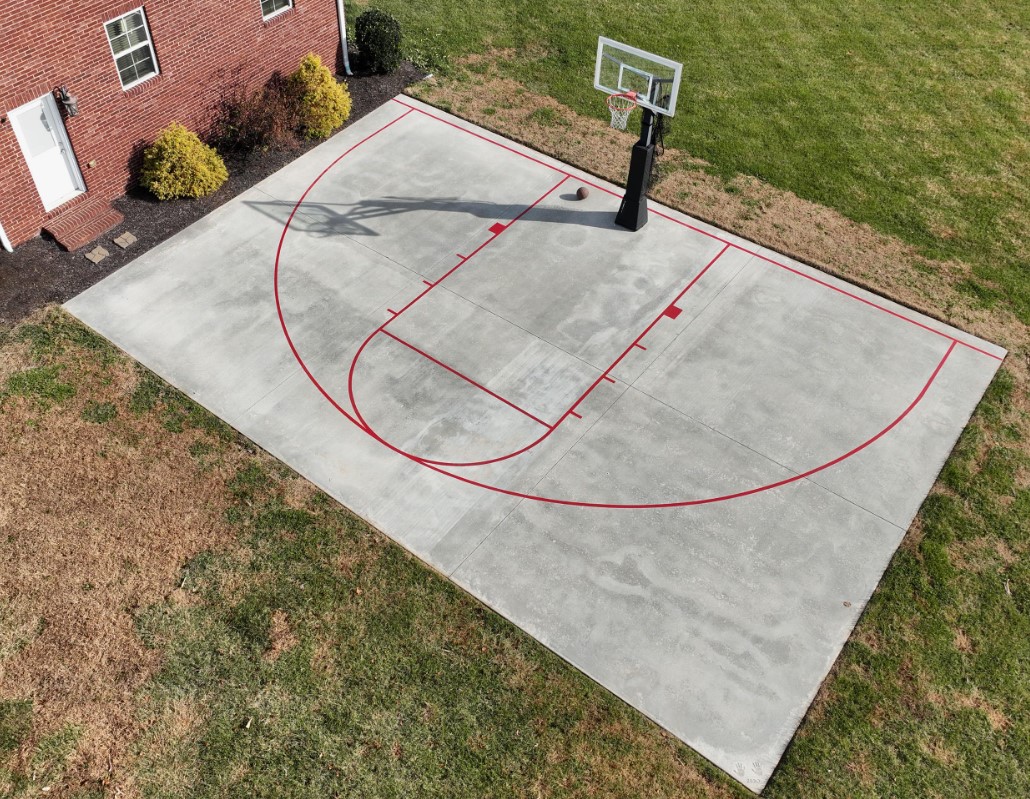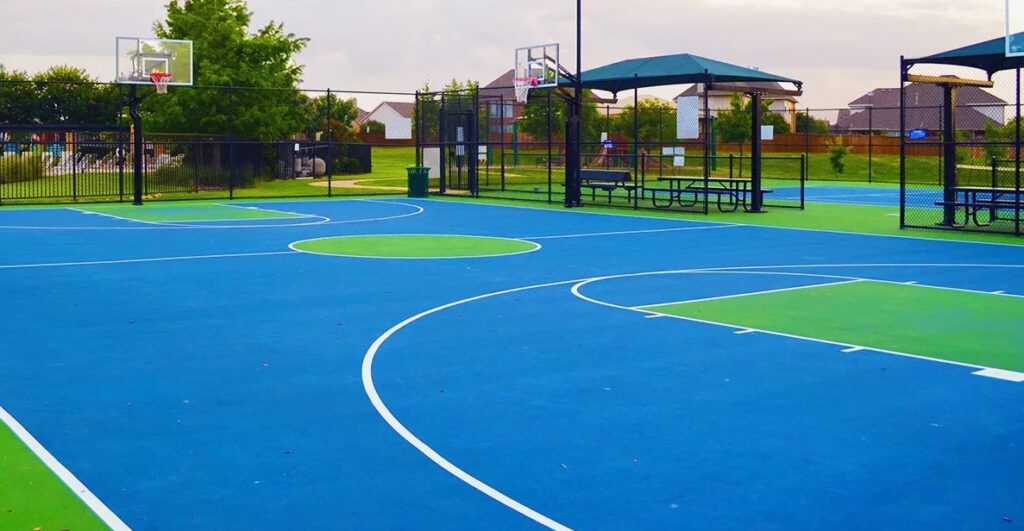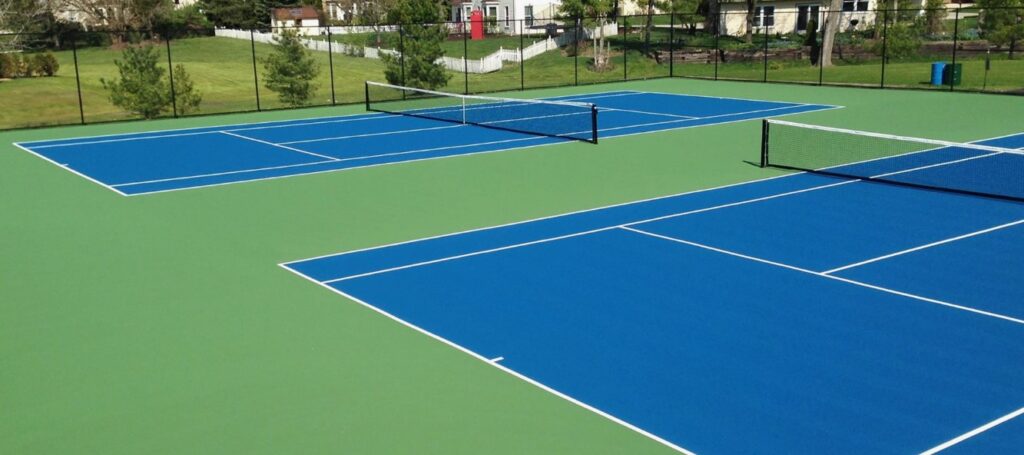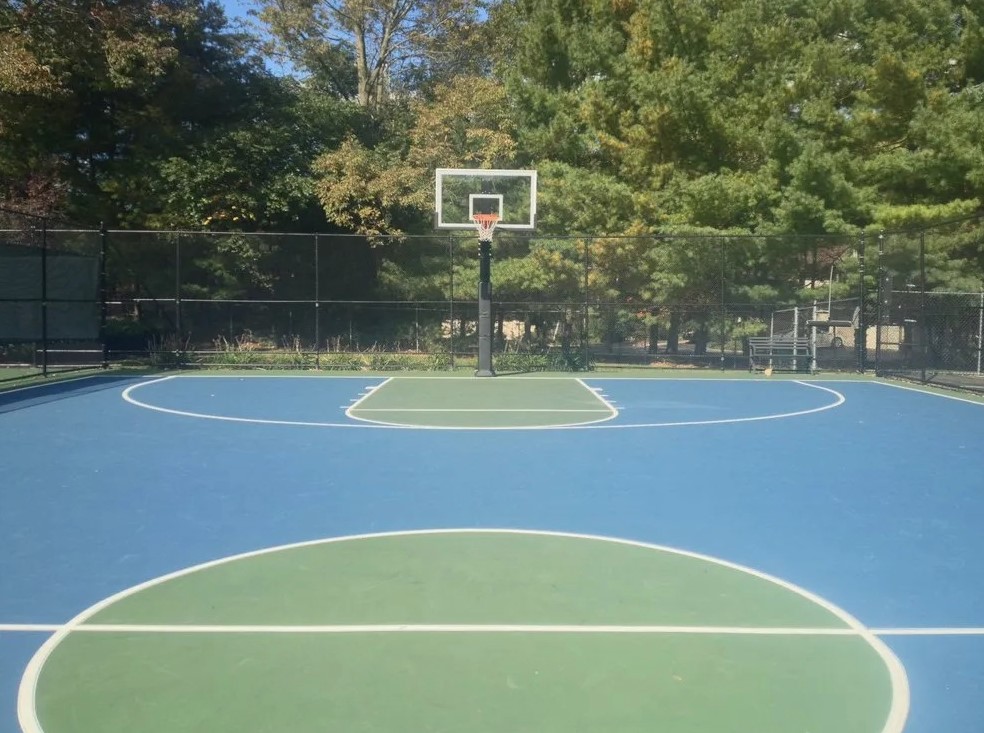Building a sport court in your backyard is exciting! Whether you want a basketball, tennis, or pickleball court, the concrete foundation is key. Its thickness affects safety, durability, and performance. At Atlas General Contractors – AGC, we serve Virginia, including in Falls Church, Vienna, Arlington, McLean, Fairfax, Ashburn, Leesburg, Herndon, Centreville, Clifton, Reston, Annandale, Burke, Fort Belvoir, Great Falls, Lorton, and Alexandria. We know local soil and weather challenges. This guide explains concrete thickness for sport courts in simple terms. It uses clear words and short sentences to help you plan a long-lasting court.
Why Does Concrete Thickness Matter?
Concrete is the base for most outdoor sport courts. It supports heavy use and weather changes. Too thin, and it cracks. Too thick, and you waste money. The right thickness ensures a stable, safe surface. In Virginia, Maryland, and Washington DC, winter freezes can harm concrete. Thicker slabs resist cracking from ice. At Atlas General Contractors – AGC, we build courts to last 20-30 years.
What Affects Concrete Thickness?
Several factors decide how thick your concrete should be. Knowing these helps avoid problems like cracks or uneven surfaces.
1.Soil Type
Soil affects stability. Virginia’s clay soils or Maryland’s mixed terrains need strong bases. Soft soil requires thicker concrete or extra gravel. A 4-6 inch gravel layer helps with drainage. Atlas General Contractors – AGC checks soil before starting.
2.Weather Conditions
Our region has cold winters and wet seasons. Freeze-thaw cycles can crack thin concrete. Thicker slabs, around 5-6 inches, handle this better. Good drainage prevents water damage, especially in rainy Maryland.
3.Sport Type
Different sports need different strengths. A backyard pickleball court can be thinner. A busy basketball court needs more thickness. Multi-sport courts in community spaces require extra durability.
4.Court Size and Rules
Larger courts, like a 94×50-foot basketball court, need even thickness. Smaller pickleball courts (30×60 feet) may need less. Local codes in Washington DC or Virginia set minimums. Always check these rules.
5.Reinforcement
Rebar or fiber mesh strengthens concrete. Use 3500-4000 PSI concrete for toughness. Tennis courts may use cables to reduce cracks. Atlas General Contractors – AGC includes these for durability.
How Thick Should It Be?
Here are standard thicknesses based on sport type. Always consult a professional for your site.
Basketball Courts
A 4-inch slab works for casual use. In our cold region, 5-6 inches is better. Add rebar every 12 inches for strength. This handles jumping and ball impacts.
Tennis Courts
Tennis needs a smooth surface. A 4-inch slab is common, but 5 inches is ideal with cables. A thicker central beam may be needed for large courts.
Pickleball Courts
Pickleball courts need at least 4 inches. For longer life, aim for 5 inches. This ensures a smooth, even surface for play.
Multi-Sport Courts
For courts mixing sports, use 4-6 inches. Add strong edges with rebar. This works well in tight spaces like Washington DC homes.
How to Build a Durable Sport Court
Follow these steps for a strong court:
- Clear the Site: Remove dirt and level the ground. Slope it slightly for water runoff.
- Add Gravel: Use 4-6 inches of compacted gravel for drainage.
- Set Forms: Build edges and add rebar or mesh. Use a vapor barrier.
- Pour Concrete: Use strong concrete and pour evenly. Vibrate to remove air.
- Cure and Finish: Let it cure for 7-28 days. Add sport coatings for grip.
Atlas General Contractors – AGC manages all steps, from permits to final touches.
Mistakes to Avoid
- Too Thin: Under 4 inches cracks easily.
- No Reinforcement: Rebar is a must for strength.
- Poor Drainage: Water ruins slabs without proper slope.
- DIY Errors: Soil tests and permits need experts.
Why Get It Right?
A good concrete thickness adds value to your home. It creates a fun, safe space for sports. It lasts years with little upkeep. In Virginia, Maryland, and Washington DC, Atlas General Contractors – AGC builds courts that shine.
Trust Atlas General Contractors – AGC
We’re your local experts in Virginia, Maryland, and Washington DC. Our team uses top materials and follows local rules. We offer free site checks to plan your perfect court. Contact Atlas General Contractors – AGC today to start building your dream sport court!




